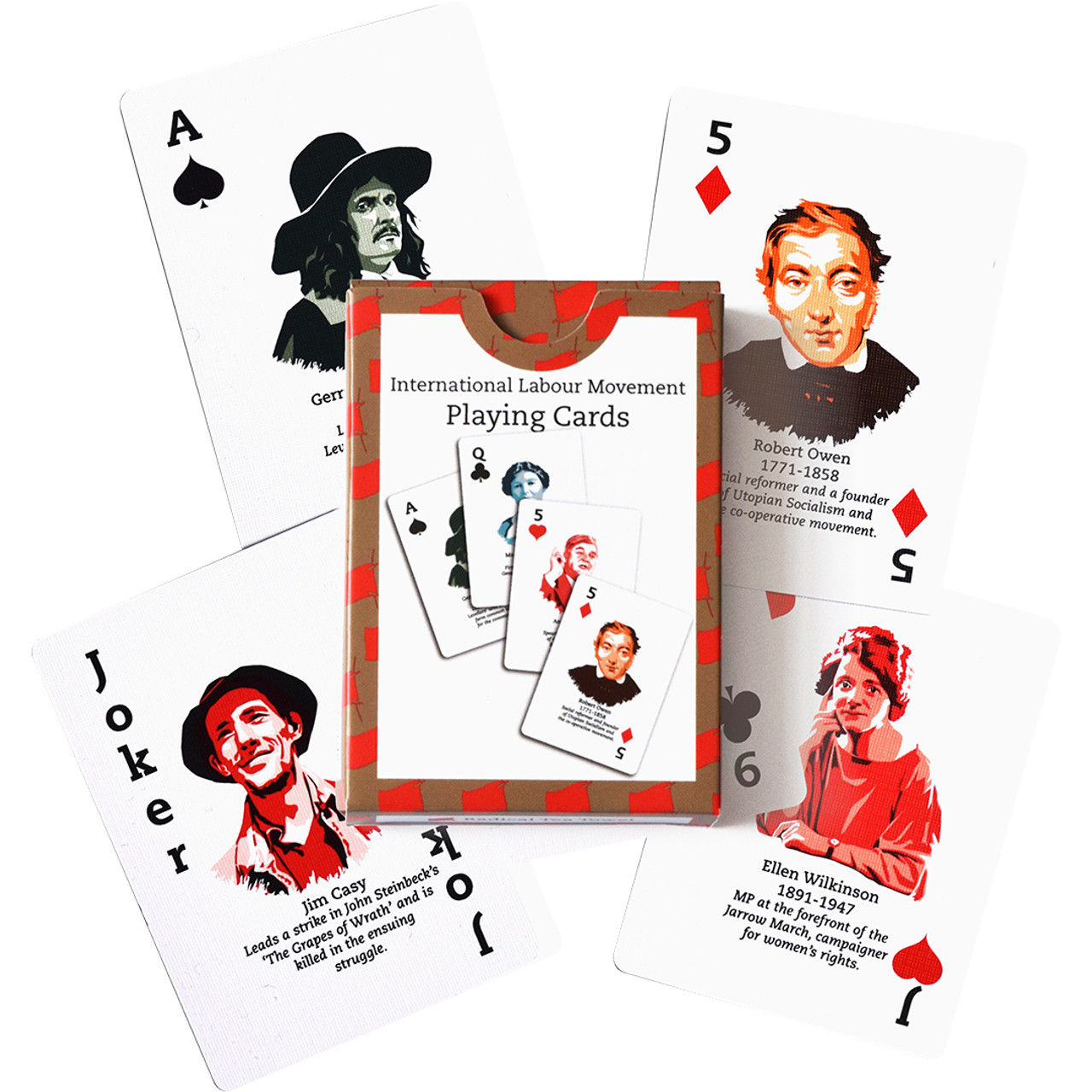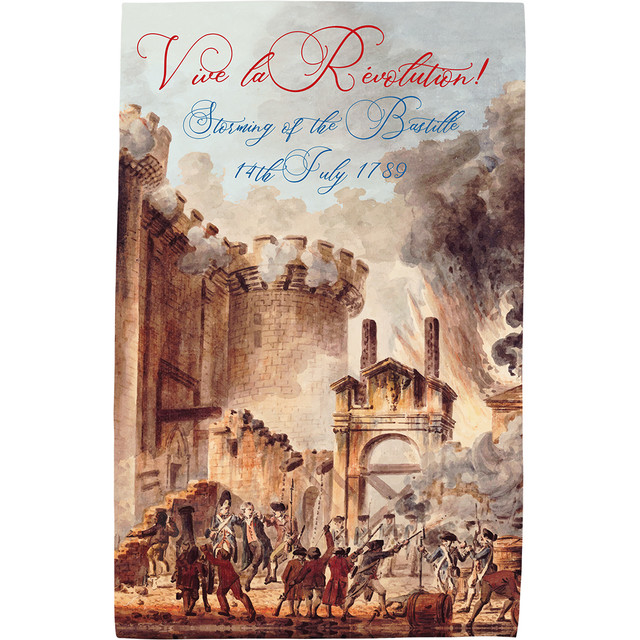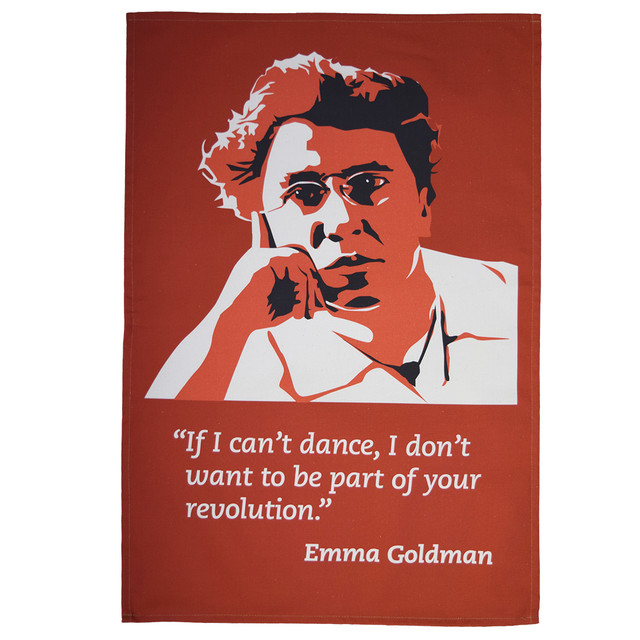Pierre-Joseph Proudhon: the man who declared "Property is theft!"
Posted by Pete on 15th Jan 2024
Brewer, printer, anarchist, anti-Semite. Pierre-Joseph Proudhon was a flawed foundation for anarchist thought
“Not only does Proudhon write in the interest of the proletarians, he is himself a proletarian…His work is a scientific manifesto of the French proletariat.”
That’s how Karl Marx described Pierre-Joseph Proudhon, who was born on this day in 1809.
Proudhon more or less founded modern anarchism, especially its socialist thread. His influence on radical history during the last two hundred years has been huge.
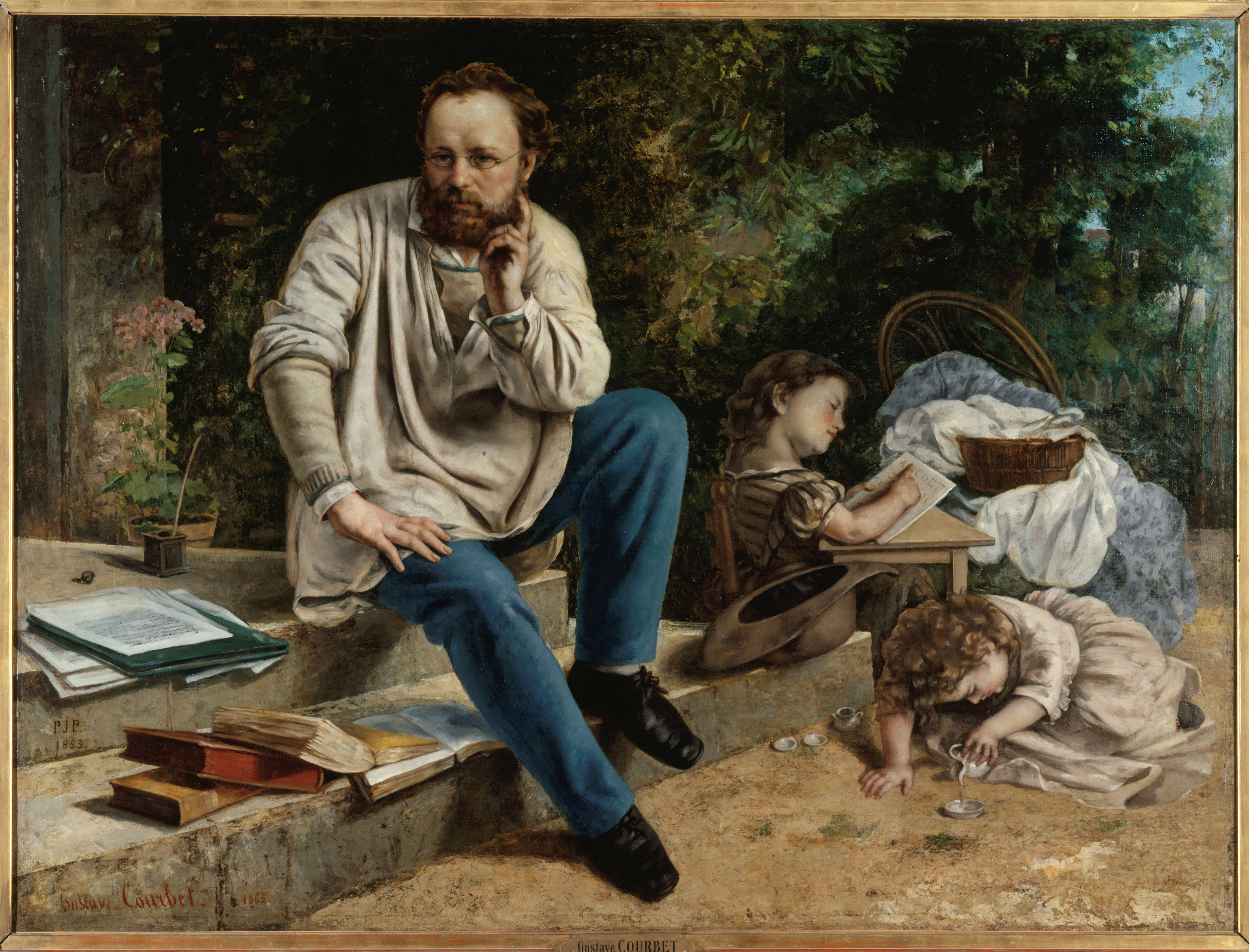
Proudhon and his children, painted by Gustave Courbet, 1865
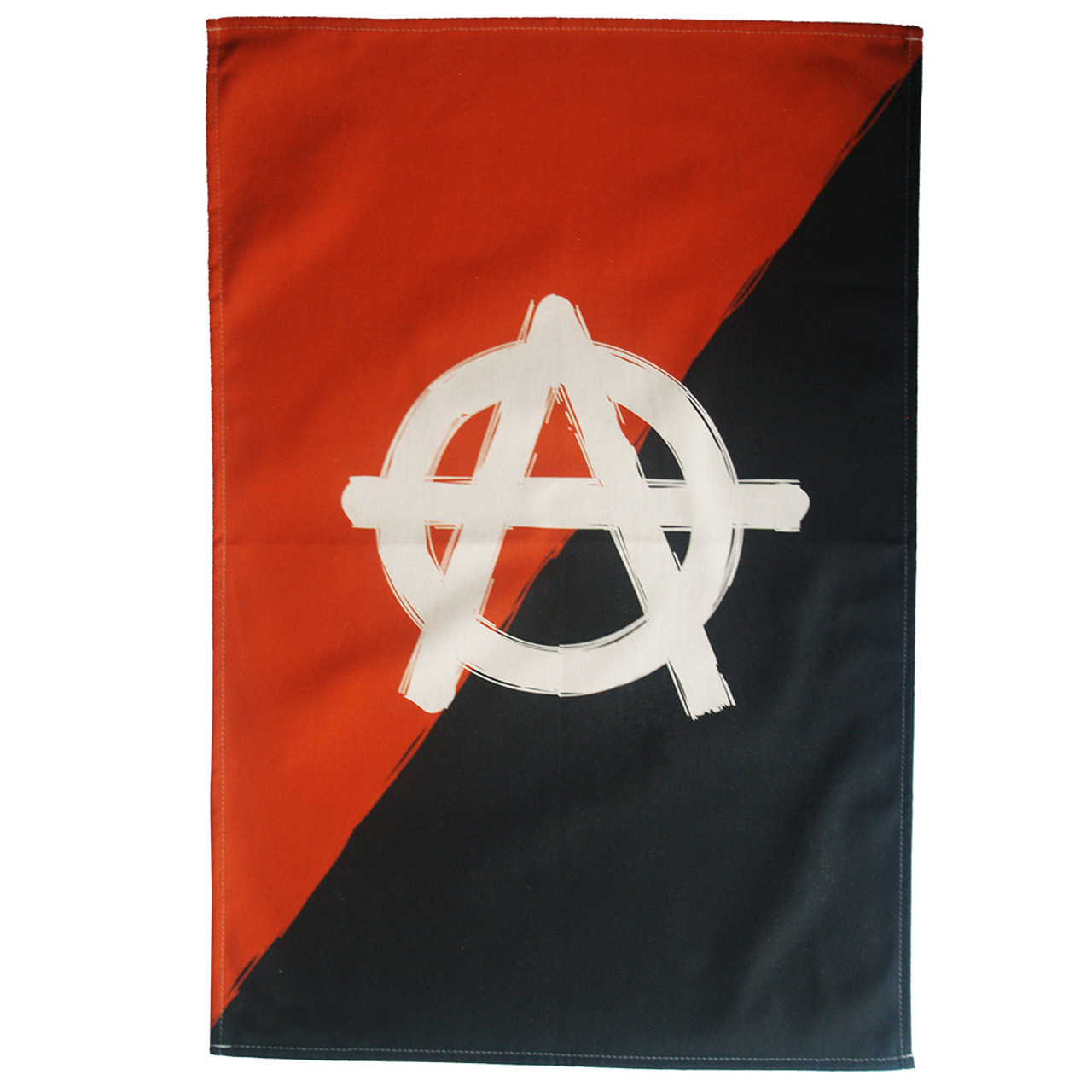
Proudhon was a self-described anarchist - though the black and red flag, and white A&O, were later symbols of the movement
Proudhon was born into a poor family in the French city of Besançon, near the border with Switzerland.
His father was a brewer, and the young Pierre-Joseph worked in the family tavern during his childhood.
Proudhon received little formal education – his parents couldn’t afford it – but his mother, Catherine, taught him to read.
Catherine’s efforts left a mark, as Pierre-Joseph developed an interest in literature and writing.
In 1827, Proudhon became an apprentice at a printing house. And through the world of books he soon came into contact with the world of politics.
In 1829, Proudhon met the pioneering French socialist, Charles Fourier, who had a big influence on Proudhon, pushing him to question basic features of the capitalist social order such as property and the state.
Influential French socialist Charles Fourier made it into our set of International Labour Movement playing cards
Browse the International Labour Movement cards
Proudhon began to read more widely, exploring the rich intellectual heritage of the French Revolution.
Radical thinkers of the Enlightenment such as Jean-Jacques Rousseau appealed to him as critics of French society.
Soon enough, Proudhon had moved to Paris and was writing his own political and social theory.
His most famous text, What Is Property? (1840), captures the essence of Proudhon’s thinking.
He rejected both the state and the private ownership of capital as fundamentally illegitimate institutions.
In a statement traditionally misattributed to Karl Marx, Proudhon argued that “property is theft!”
He thought that privately-owned productive resources, insofar as their ownership could always be traced back to some act of arbitrary violence, were all stolen goods.
Proudhon believed that the state was inherently unjust, too, as it provided violent security for the owners of capital and tended to violate the individual freedom of its citizens.
In making this case, Proudhon became the first influential political thinker to describe himself as an “anarchist”.
Proudhon developed his politics during a period of radical political thought following the French Revolution
See the Storming of the Bastille tea towel
This was a radical step. “Anarchy” had been synonymous with chaos and injustice, among both conservatives and revolutionaries, for millennia.
But Proudhon was trying to redefine anarchy as a positive term for liberty; for the “absence of a master, of a sovereign.”
Proudhon argued that anarchy was in fact true freedom, because there was no meaningful difference between political government and unjust exploitation:
“…we do not admit the government of man by man any more than the exploitation of man by man.”
In its critique of the state and property, Proudhon’s writing laid the groundwork for much of modern anarchism.
And in addition to his intellectual endeavours, Proudhon was an active participant in French revolutionary politics.
He took part in the French Revolution of 1848, celebrating the overthrow of the monarchy while warning socialists against what he thought was their unwise trust in the state as a potential instrument of social revolution.
But Proudhon also held a range of utterly reprehensible beliefs, including anti-Semitism and support for patriarchy. He is not a person to celebrate or romanticise.
Rather, Proudhon just marks an important historical chapter in the development of modern anarchist thought.
Proudhon's thought inspired later anarchists like Emma Goldman
See the Emma Goldman tea towel
Proudhon’s rejection of state authority was an important intellectual foundation for later anarchists, more ethical than him, and far more inclusive in their visions of freedom and equality.
Anarchists like Emma Goldman and the anti-fascist supporters of the Spanish Republic built upon and expanded Proudhon’s critique of private property and the state, creating the bold visions of human emancipation of which Proudhon himself had been incapable.
Pierre-Joseph Proudhon, in other words, is an unavoidable character in the history of modern anarchism. But modern anarchism only became a true force for liberation once it moved beyond him.

